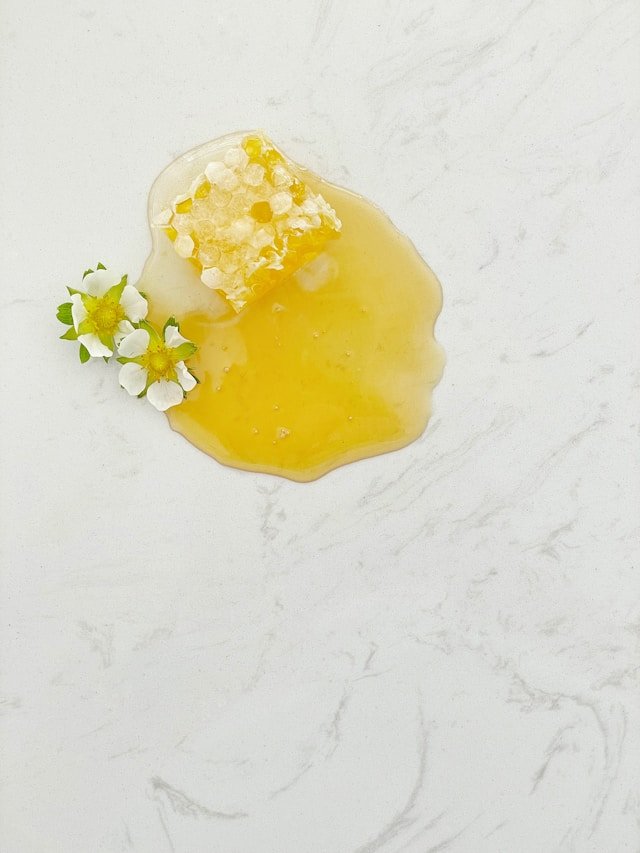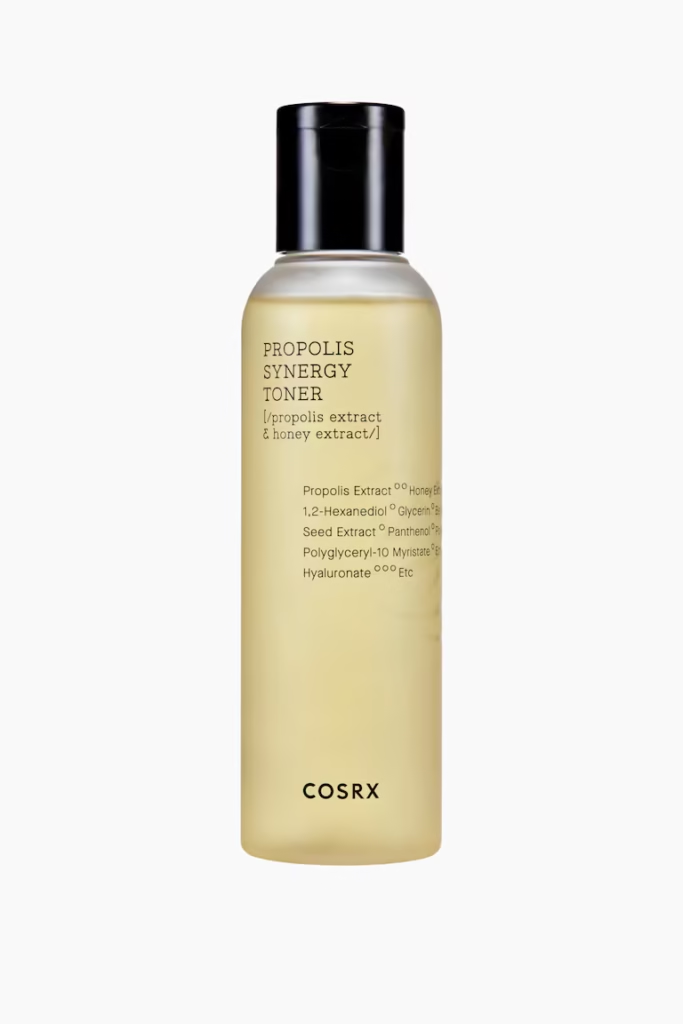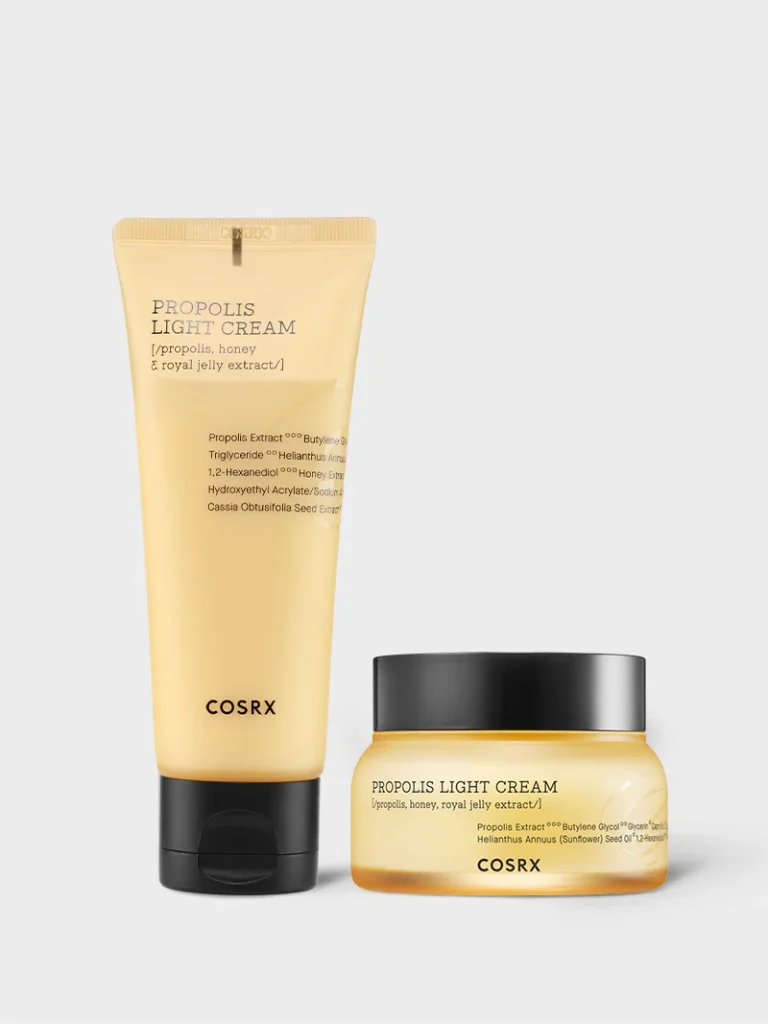Unlock Radiant Skin: The Science-Backed Benefits of Propolis
Have you ever wondered what gives honey its incredible healing properties? The secret lies not just in the honey itself, but in a remarkable substance called propolis. This natural wonder has been quietly revolutionizing skincare routines worldwide, offering powerful benefits that synthetic ingredients often can’t match.
Propolis isn’t just another buzzy beauty trend—it’s a time-tested ingredient with genuine scientific backing. From ancient civilizations to modern dermatology labs, propolis has proven its worth as a skin-transforming powerhouse. Whether you’re dealing with acne, signs of aging, or simply want to enhance your skin’s natural glow, understanding the benefits of propolis for skin could be the game-changer you’ve been searching for.
This comprehensive guide will walk you through everything you need to know about propolis skincare, from its fascinating origins to choosing the perfect product for your unique skin needs. You’ll discover how this bee-made marvel can address your specific skin concerns while supporting your journey toward healthier, more radiant skin.
The Fascinating Origins of Propolis
Propolis, often called “bee glue,” represents one of nature’s most ingenious creations. Honeybees collect resinous materials from tree buds, sap flows, and botanical sources, then mix these substances with their own enzymes to create propolis. This sticky, protective substance serves as the ultimate defense system for bee colonies, sealing cracks in the hive and providing antimicrobial protection.
The word “propolis” comes from ancient Greek, meaning “defense of the city”—a fitting name for a substance that literally protects entire bee communities. Ancient Egyptians were among the first to recognize propolis’s remarkable properties, using it for mummification processes due to its exceptional preservation qualities. Greek and Roman physicians prescribed propolis for wound healing and various ailments, establishing a therapeutic tradition that continues today.
Different geographical regions produce propolis with varying compositions, depending on local flora. Brazilian green propolis, derived from Baccharis dracunculifolia plants, offers different benefits than European propolis sourced from poplar trees. This diversity means that propolis products can offer a range of skin benefits depending on their botanical origins.
The Chemical Powerhouse Behind Propolis
Understanding the chemical composition of propolis helps explain why it delivers such impressive propolis skin benefits. This complex substance contains over 300 identified compounds, creating a synergistic blend that synthetic ingredients struggle to replicate.
Key Active Compounds
Flavonoids make up a significant portion of propolis’s beneficial compounds. These powerful antioxidants, including quercetin, kaempferol, and galangin, protect skin cells from free radical damage while supporting collagen production. Flavonoids also contribute to propolis’s anti-inflammatory properties, making it excellent for sensitive or reactive skin types.
Phenolic acids provide additional antioxidant protection while offering antimicrobial benefits. Caffeic acid, ferulic acid, and cinnamic acid work together to protect skin from environmental stressors and support natural healing processes.
Essential oils and aromatic compounds give propolis its distinctive scent while contributing to its therapeutic properties. These volatile compounds enhance penetration into skin layers and provide additional antimicrobial benefits.
Amino acids, vitamins, and minerals round out propolis’s nutritional profile, providing building blocks for healthy skin cell regeneration and supporting overall skin vitality.
This rich chemical complexity explains why propolis offers such comprehensive skin benefits—it’s literally a natural pharmacy in one substance.
Comprehensive Benefits of Propolis for Skin
Powerful Antimicrobial Protection
One of the most celebrated benefits of propolis for skin is its exceptional antimicrobial activity. Research shows that propolis effectively targets various bacteria, fungi, and viruses that can compromise skin health. This makes it particularly valuable for acne-prone skin, as it can help control Propionibacterium acnes, the bacteria primarily responsible for inflammatory acne.
Unlike harsh antibacterial ingredients that can disrupt skin’s natural microbiome, propolis works selectively, targeting harmful microorganisms while supporting beneficial bacteria. This gentle yet effective approach makes it suitable for long-term use without creating resistance or dependency issues.
Anti-Inflammatory Excellence
Chronic inflammation underlies many skin concerns, from acne and rosacea to premature aging. Propolis contains multiple anti-inflammatory compounds that work at different levels to calm irritated skin. Studies demonstrate that propolis can significantly reduce inflammatory markers, making it valuable for conditions like eczema, psoriasis, and sensitive skin reactions.
The anti-inflammatory benefits of propolis extend beyond immediate soothing effects. Regular use can help break the cycle of chronic inflammation that contributes to accelerated aging and various skin disorders.
Antioxidant Powerhouse
Environmental stressors constantly bombard our skin with free radicals, leading to premature aging, hyperpigmentation, and cellular damage. Propolis provides exceptional antioxidant protection, with studies showing it can be more effective than vitamin C in certain applications.
The diverse range of antioxidants in propolis works synergistically to neutralize different types of free radicals. This comprehensive protection helps maintain skin’s youthful appearance while preventing long-term damage from UV exposure, pollution, and other environmental factors.
Wound Healing and Regeneration
Traditional medicine has long recognized propolis’s wound-healing properties, and modern research confirms these benefits. Propolis accelerates wound healing by promoting cell proliferation, supporting collagen synthesis, and enhancing blood circulation to affected areas.
For skincare applications, these healing properties translate to faster recovery from breakouts, reduced scarring, and improved overall skin texture. Regular use of propolis skincare products can help skin bounce back more quickly from daily stressors and minor irritations.
Hydration and Barrier Support
Healthy skin requires a strong barrier function to retain moisture and protect against irritants. Propolis helps strengthen skin’s natural barrier while providing gentle hydration. Unlike heavy occlusive ingredients, propolis delivers moisture without clogging pores or feeling greasy.
The barrier-supporting properties of propolis are particularly beneficial for those with compromised skin barriers due to over-exfoliation, harsh products, or environmental damage.
Exploring Different Propolis Skincare Products
Propolis Serums
Propolis serums offer concentrated benefits in a lightweight, easily absorbed format. These products typically contain higher percentages of propolis extract, making them ideal for targeting specific skin concerns. Look for serums with propolis concentrations between 10-30% for optimal effectiveness without irritation.
Quality propolis serums often combine propolis with complementary ingredients like hyaluronic acid for hydration or niacinamide for additional pore-refining benefits. These combinations can enhance the overall effectiveness of your skincare routine.
Cleansers and Toners
Propolis-infused cleansers provide gentle yet effective cleansing while delivering antimicrobial benefits. These products are particularly suitable for acne-prone skin, as they can help control bacteria without stripping skin’s natural oils.
Propolis toners offer a lightweight way to incorporate this beneficial ingredient into your routine. They can help balance skin’s pH while providing antioxidant protection and gentle antimicrobial benefits.
Moisturizers and Creams
Propolis moisturizers combine the ingredient’s therapeutic benefits with essential hydration. These products work well for most skin types, providing moisture without heaviness. Look for formulations that balance propolis with other hydrating ingredients like ceramides or hyaluronic acid.
Spot Treatments and Masks
Concentrated propolis spot treatments can target specific blemishes or areas of concern. These products typically contain higher propolis concentrations and may include additional acne-fighting ingredients.
Propolis masks offer intensive treatment options, delivering concentrated benefits for weekly or bi-weekly use. Sheet masks soaked in propolis essence provide convenient, spa-like treatments at home.
Choosing the Right Propolis Product for Your Skin
Understanding Your Skin Type
Different skin types can benefit from propolis, but choosing the right formulation matters. Oily and acne-prone skin typically responds well to lighter propolis serums or toners, while dry skin may prefer propolis-enriched moisturizers or creams.
Sensitive skin requires gentler formulations with lower propolis concentrations initially. Start with products containing 5-10% propolis and gradually increase concentration as your skin builds tolerance.
Reading Product Labels
Quality propolis products should clearly state the propolis concentration and source. Look for products that specify the type of propolis used (Brazilian green propolis, European propolis, etc.) and the extraction method.
Avoid products that list propolis far down the ingredient list, as this indicates minimal concentrations that may not provide significant benefits. Quality brands typically highlight propolis as a key ingredient and provide information about its source and concentration.
Patch Testing Importance
Even natural ingredients can cause reactions in sensitive individuals. Always perform a patch test before using new propolis products. Apply a small amount to your inner wrist or behind your ear and wait 24-48 hours to check for any adverse reactions.
Starting Slowly
When introducing propolis into your routine, start with lower concentrations and less frequent use. Begin with once every other day and gradually increase to daily use as your skin adapts. This approach minimizes the risk of irritation while allowing your skin to acclimate to this potent ingredient.
Side Effects and Important Precautions
Allergic Reactions
While propolis is generally well-tolerated, allergic reactions can occur, particularly in individuals allergic to bee products, tree pollens, or specific plants. Symptoms may include redness, itching, swelling, or rash. Those with known bee allergies should exercise particular caution.
If you experience any signs of allergic reaction, discontinue use immediately and consult a healthcare provider if symptoms persist or worsen.
Pregnancy and Nursing Considerations
Pregnant and nursing women should consult healthcare providers before using propolis products. While topical use is generally considered safer than internal consumption, it’s always best to seek professional guidance during these sensitive periods.
Medication Interactions
Propolis may interact with certain medications, particularly blood thinners and immunosuppressants. If you’re taking any medications, consult your healthcare provider before incorporating propolis products into your routine.
Quality and Purity Concerns
Not all propolis products are created equal. Poor-quality products may contain contaminants or insufficient active compounds. Choose products from reputable brands that provide third-party testing results and transparency about their sourcing and manufacturing processes.
Maximizing Your Propolis Skincare Results
Consistency is Key
Like most skincare ingredients, propolis delivers best results with consistent use over time. While some benefits like antimicrobial effects may be noticeable within days, improvements in skin texture, hydration, and overall appearance typically require 4-8 weeks of regular use.
Layering with Other Ingredients
Propolis plays well with most skincare ingredients, making it easy to incorporate into existing routines. It pairs particularly well with hydrating ingredients like hyaluronic acid, gentle exfoliants like lactic acid, and other antioxidants like vitamin C.
However, be cautious when combining propolis with strong actives like retinoids or high-concentration AHA/BHA products, especially when first introducing propolis to your routine.
Sun Protection Remains Essential
While propolis provides antioxidant protection, it shouldn’t replace proper sun protection. Always use broad-spectrum SPF 30 or higher during the day, as propolis can make skin slightly more photosensitive in some individuals.
Your Journey to Healthier Skin Starts Here
The benefits of propolis for skin extend far beyond simple moisturization or cleansing. This remarkable natural ingredient offers a comprehensive approach to skin health, addressing multiple concerns simultaneously while supporting your skin’s natural functions. From its powerful antimicrobial properties to its impressive antioxidant protection, propolis represents a bridge between ancient wisdom and modern skincare science.
As you explore propolis skincare options, remember that the best product is one that fits your specific skin type, concerns, and lifestyle. Start slowly, listen to your skin’s responses, and be patient as your skin adapts to this potent natural ingredient. With consistent use and proper selection, propolis can become a cornerstone of your journey toward healthier, more radiant skin.
Ready to experience the transformative power of propolis? Begin by identifying your primary skin concerns and choosing a gentle, well-formulated propolis product to start your journey. Your skin—and your confidence—will thank you for making this natural, science-backed choice.





